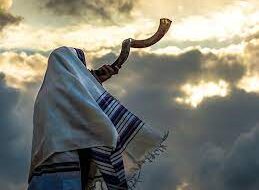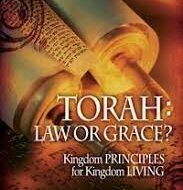Tag Archives: Brad Scott
The Langue of Exile Part 1 of 2
Reading from the book Torah: Law or Grace Kingdom Principles for Kingdom Living by Ralph Messer
1 Corinthians 13 Daily Bible Reading with Paul Nison
Love Is the Greatest
13 If I could speak all the languages of earth and of angels, but didn’t love others, I would only be a noisy gong or a clanging cymbal. 2 If I had the gift of prophecy, and if I understood all of God’s secret plans and possessed all knowledge, and if I had such faith that I could move mountains, but didn’t love others, I would be nothing. 3 If I gave everything I have to the poor and even sacrificed my body, I could boast about it;[a] but if I didn’t love others, I would have gained nothing.
4 Love is patient and kind. Love is not jealous or boastful or proud 5 or rude. It does not demand its own way. It is not irritable, and it keeps no record of being wronged. 6 It does not rejoice about injustice but rejoices whenever the truth wins out. 7 Love never gives up, never loses faith, is always hopeful, and endures through every circumstance.
8 Prophecy and speaking in unknown languages[b] and special knowledge will become useless. But love will last forever! 9 Now our knowledge is partial and incomplete, and even the gift of prophecy reveals only part of the whole picture! 10 But when the time of perfection comes, these partial things will become useless.
11 When I was a child, I spoke and thought and reasoned as a child. But when I grew up, I put away childish things. 12 Now we see things imperfectly, like puzzling reflections in a mirror, but then we will see everything with perfect clarity.[c] All that I know now is partial and incomplete, but then I will know everything completely, just as God now knows me completely.
13 Three things will last forever—faith, hope, and love—and the greatest of these is love.
The Hebrew Roots of the Christian Faith
Reading from the book Torah: Law or Grace Kingdom Principles for Kingdom Living by Ralph Messer
1 Corinthians 12 Daily Bible Reading with Paul Nison
Spiritual Gifts
12 Now, dear brothers and sisters,[a] regarding your question about the special abilities the Spirit gives us. I don’t want you to misunderstand this. 2 You know that when you were still pagans, you were led astray and swept along in worshiping speechless idols. 3 So I want you to know that no one speaking by the Spirit of God will curse Jesus, and no one can say Jesus is Lord, except by the Holy Spirit.
4 There are different kinds of spiritual gifts, but the same Spirit is the source of them all. 5 There are different kinds of service, but we serve the same Lord. 6 God works in different ways, but it is the same God who does the work in all of us.
7 A spiritual gift is given to each of us so we can help each other. 8 To one person the Spirit gives the ability to give wise advice[b]; to another the same Spirit gives a message of special knowledge.[c] 9 The same Spirit gives great faith to another, and to someone else the one Spirit gives the gift of healing. 10 He gives one person the power to perform miracles, and another the ability to prophesy. He gives someone else the ability to discern whether a message is from the Spirit of God or from another spirit. Still another person is given the ability to speak in unknown languages,[d] while another is given the ability to interpret what is being said. 11 It is the one and only Spirit who distributes all these gifts. He alone decides which gift each person should have.
One Body with Many Parts
12 The human body has many parts, but the many parts make up one whole body. So it is with the body of Christ. 13 Some of us are Jews, some are Gentiles,[e] some are slaves, and some are free. But we have all been baptized into one body by one Spirit, and we all share the same Spirit.[f]
14 Yes, the body has many different parts, not just one part. 15 If the foot says, “I am not a part of the body because I am not a hand,” that does not make it any less a part of the body. 16 And if the ear says, “I am not part of the body because I am not an eye,” would that make it any less a part of the body? 17 If the whole body were an eye, how would you hear? Or if your whole body were an ear, how would you smell anything?
18 But our bodies have many parts, and God has put each part just where he wants it. 19 How strange a body would be if it had only one part! 20 Yes, there are many parts, but only one body. 21 The eye can never say to the hand, “I don’t need you.” The head can’t say to the feet, “I don’t need you.”
22 In fact, some parts of the body that seem weakest and least important are actually the most necessary. 23 And the parts we regard as less honorable are those we clothe with the greatest care. So we carefully protect those parts that should not be seen, 24 while the more honorable parts do not require this special care. So God has put the body together such that extra honor and care are given to those parts that have less dignity. 25 This makes for harmony among the members, so that all the members care for each other. 26 If one part suffers, all the parts suffer with it, and if one part is honored, all the parts are glad.
27 All of you together are Christ’s body, and each of you is a part of it. 28 Here are some of the parts God has appointed for the church:
first are apostles,
second are prophets,
third are teachers,
then those who do miracles,
those who have the gift of healing,
those who can help others,
those who have the gift of leadership,
those who speak in unknown languages.
29 Are we all apostles? Are we all prophets? Are we all teachers? Do we all have the power to do miracles? 30 Do we all have the gift of healing? Do we all have the ability to speak in unknown languages? Do we all have the ability to interpret unknown languages? Of course not! 31 So you should earnestly desire the most helpful gifts.
But now let me show you a way of life that is best of all.
Understanding Yom Teruah/Rosh Hashanah
Understanding Yom Teruah/Rosh Hashanah
One God, No Trinity
This is a reading from Chapter 2 of the book Torah: Law or Grace by Ralph Messer
1 Corinthians 9 Daily Bible Reading with Paul Nison
Paul Gives Up His Rights
9 Am I not as free as anyone else? Am I not an apostle? Haven’t I seen Jesus our Lord with my own eyes? Isn’t it because of my work that you belong to the Lord? 2 Even if others think I am not an apostle, I certainly am to you. You yourselves are proof that I am the Lord’s apostle.
3 This is my answer to those who question my authority.[a] 4 Don’t we have the right to live in your homes and share your meals? 5 Don’t we have the right to bring a believing wife[b] with us as the other apostles and the Lord’s brothers do, and as Peter[c] does? 6 Or is it only Barnabas and I who have to work to support ourselves?
7 What soldier has to pay his own expenses? What farmer plants a vineyard and doesn’t have the right to eat some of its fruit? What shepherd cares for a flock of sheep and isn’t allowed to drink some of the milk? 8 Am I expressing merely a human opinion, or does the law say the same thing? 9 For the law of Moses says, “You must not muzzle an ox to keep it from eating as it treads out the grain.”[d] Was God thinking only about oxen when he said this? 10 Wasn’t he actually speaking to us? Yes, it was written for us, so that the one who plows and the one who threshes the grain might both expect a share of the harvest.
11 Since we have planted spiritual seed among you, aren’t we entitled to a harvest of physical food and drink? 12 If you support others who preach to you, shouldn’t we have an even greater right to be supported? But we have never used this right. We would rather put up with anything than be an obstacle to the Good News about Christ.
13 Don’t you realize that those who work in the temple get their meals from the offerings brought to the temple? And those who serve at the altar get a share of the sacrificial offerings. 14 In the same way, the Lord ordered that those who preach the Good News should be supported by those who benefit from it. 15 Yet I have never used any of these rights. And I am not writing this to suggest that I want to start now. In fact, I would rather die than lose my right to boast about preaching without charge. 16 Yet preaching the Good News is not something I can boast about. I am compelled by God to do it. How terrible for me if I didn’t preach the Good News!
17 If I were doing this on my own initiative, I would deserve payment. But I have no choice, for God has given me this sacred trust. 18 What then is my pay? It is the opportunity to preach the Good News without charging anyone. That’s why I never demand my rights when I preach the Good News.
19 Even though I am a free man with no master, I have become a slave to all people to bring many to Christ. 20 When I was with the Jews, I lived like a Jew to bring the Jews to Christ. When I was with those who follow the Jewish law, I too lived under that law. Even though I am not subject to the law, I did this so I could bring to Christ those who are under the law. 21 When I am with the Gentiles who do not follow the Jewish law,[e] I too live apart from that law so I can bring them to Christ. But I do not ignore the law of God; I obey the law of Christ.
22 When I am with those who are weak, I share their weakness, for I want to bring the weak to Christ. Yes, I try to find common ground with everyone, doing everything I can to save some. 23 I do everything to spread the Good News and share in its blessings.
24 Don’t you realize that in a race everyone runs, but only one person gets the prize? So run to win! 25 All athletes are disciplined in their training. They do it to win a prize that will fade away, but we do it for an eternal prize. 26 So I run with purpose in every step. I am not just shadowboxing. 27 I discipline my body like an athlete, training it to do what it should. Otherwise, I fear that after preaching to others I myself might be disqualified.
The Historical Understanding of The Torah
This reading is from Chapter one from the book Torah: Law or Grace? Kingdom Principles or Kingdom Living by Ralph Messer
1 Corinthians 8 Daily Bible Reading with Paul Nison
Food Sacrificed to Idols
8 Now regarding your question about food that has been offered to idols. Yes, we know that “we all have knowledge” about this issue. But while knowledge makes us feel important, it is love that strengthens the church. 2 Anyone who claims to know all the answers doesn’t really know very much. 3 But the person who loves God is the one whom God recognizes.[a]
4 So, what about eating meat that has been offered to idols? Well, we all know that an idol is not really a god and that there is only one God. 5 There may be so-called gods both in heaven and on earth, and some people actually worship many gods and many lords. 6 But for us,
There is one God, the Father,
by whom all things were created,
and for whom we live.
And there is one Lord, Jesus Christ,
through whom all things were created,
and through whom we live.
7 However, not all believers know this. Some are accustomed to thinking of idols as being real, so when they eat food that has been offered to idols, they think of it as the worship of real gods, and their weak consciences are violated. 8 It’s true that we can’t win God’s approval by what we eat. We don’t lose anything if we don’t eat it, and we don’t gain anything if we do.
9 But you must be careful so that your freedom does not cause others with a weaker conscience to stumble. 10 For if others see you—with your “superior knowledge”—eating in the temple of an idol, won’t they be encouraged to violate their conscience by eating food that has been offered to an idol? 11 So because of your superior knowledge, a weak believer[b] for whom Christ died will be destroyed. 12 And when you sin against other believers[c] by encouraging them to do something they believe is wrong, you are sinning against Christ. 13 So if what I eat causes another believer to sin, I will never eat meat again as long as I live—for I don’t want to cause another believer to stumble.
Salvation and Redemption
“Kingdom PRINCIPLES for Kingdom LIVING” Ralph Messer delivers this absolutely essential teaching on the Torah including the history of the Jewish people, the early Church, and the conflicting interpretations of Scripture surrounding the Torah – God’s Teaching and Instruction!








